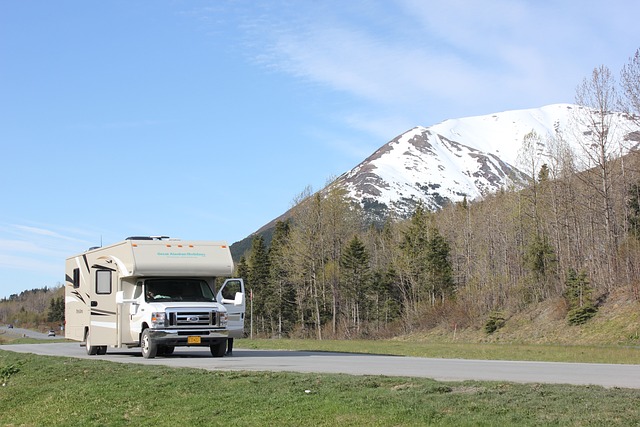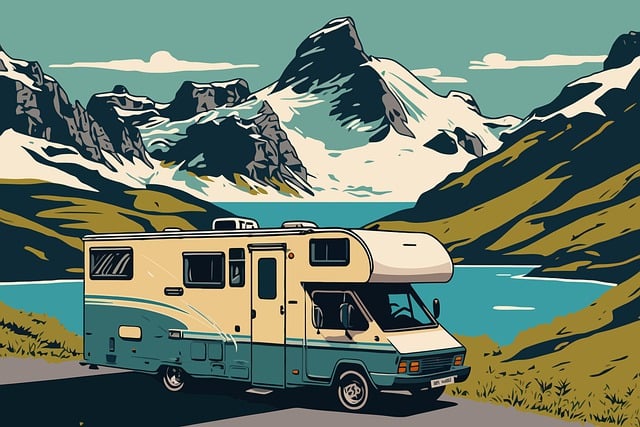Embarking on 'RVing for Beginners' requires strategic planning and a clear vision of your travel goals to ensure a cost-effective experience. Beginners should research their desired destinations and campground types, plan for various expenses including RV purchase, fuel, maintenance, and living costs, and consider regional price differences, especially at national parks. To maximize your budget, travel during off-peak times, book campsites ahead of time, and conserve energy and water. Selecting an RV that fits your lifestyle and budget is crucial, with Class B camper vans offering a balance between affordability and comfort for those new to the lifestyle. Utilizing campground memberships and passes, like Thousand Trails, Passport America, and an America the Beautiful National Parks Pass, can lead to significant savings. Regular vehicle maintenance and adopting energy-efficient practices are key to avoiding costly repairs and reducing operational expenses. Strategic meal planning and grocery shopping will help manage food costs without compromising on your travel experience. With careful consideration of these aspects, 'RVing for Beginners' can navigate the journey with confidence, ensuring both a sustainable and enjoyable RV lifestyle.
Embarking on RV travel can be a budget-friendly adventure with the right planning and strategies. This article serves as your compass for RVing for beginners, guiding you through budget planning, selecting the ideal RV for your finances, and leveraging cost-saving campground memberships and passes. You’ll also discover economical measures to maintain and operate your RV efficiently, alongside practical tips for savvy RV cuisine on the road. Whether you’re a seasoned traveler or a newcomer to the RV lifestyle, these tips ensure enjoyable travels without depleting your wallet.
- Budget Planning for RVing Beginners: Setting Realistic Expectations
- Choosing the Right RV for Your Budget and Lifestyle
- Cost-Saving Strategies for RV Travel: Campground Memberships and Passes
- Economical Measures for RV Maintenance and Operation Costs
- Eating Smart on the Road: Balancing Convenience and Savings in RV Cuisine
Budget Planning for RVing Beginners: Setting Realistic Expectations

Embarking on an RVing journey as a beginner can be both exhilarating and daunting due to the myriad expenses involved. To navigate this adventure cost-effectively, meticulous budget planning is paramount. Beginners should start by outlining their travel goals, determining how long they plan to spend on the road, and identifying the types of campgrounds and destinations they prefer. This foundation allows for a realistic assessment of costs, including RV purchase or rental, fuel, maintenance, campsite fees, and daily living expenses. It’s crucial to consider regional variations in these costs; for instance, national parks often charge higher fees than private campgrounds.
Once the initial framework is in place, RVers can explore cost-saving strategies such as traveling during off-peak seasons or booking campsites well in advance. Additionally, understanding the nuances of your RV’s energy usage and learning to optimize its efficiency can significantly reduce utility bills. Budgeting for unexpected repairs or upgrades is also wise, ensuring that your travels remain financially sustainable. By setting realistic expectations based on thorough research and careful planning, newcomers to RVing can embark on their adventure without the looming threat of financial strain, making the most of their experiences on the open road.
Choosing the Right RV for Your Budget and Lifestyle

When embarking on the journey of RVing for beginners, selecting the right Recreational Vehicle that aligns with your budget and lifestyle is paramount. The first step in this process is to assess your financial situation honestly. Consider not just the initial purchase cost but also the ongoing expenses such as insurance, maintenance, fuel, and campsite fees. These costs can vary widely depending on the size and type of RV you choose. Class A motorhomes offer luxury and convenience but come with a higher price tag compared to smaller Class C models or travel trailers, which are more budget-friendly and can be towed by a variety of vehicles.
Another crucial factor is determining how you plan to use your RV. Are you looking for a home on wheels for short weekend getaways or extended cross-country adventures? Your answer will influence the size, amenities, and layout that are right for you. For those new to RVing, it might be wise to start with a mid-range option that allows flexibility without overextending your budget. Class B camper vans, also known as van conversions, are an excellent choice for solo travelers or couples seeking a compact and cost-effective RV experience. They offer the comforts of home in a smaller package, making them ideal for navigating the journey of RVing for beginners with practicality and economy in mind.
Cost-Saving Strategies for RV Travel: Campground Memberships and Passes

When embarking on RVing for Beginners, one of the most cost-effective strategies to consider involves leveraging campground memberships and passes. These can significantly reduce your travel expenses while providing a network of convenient locations to rest and explore. For instance, membership programs like Thousand Trails and Passport America offer discounted rates at affiliated campgrounds across the nation. By planning your route around these networks, you can save substantially on nightly fees. Additionally, investing in an America the Beautiful National Parks Pass grants access to over 2,000 federal recreation sites, including national parks, monuments, and historic sites, at a fraction of the cost compared to individual entrance fees. This pass is particularly valuable for those RVing for Beginners who wish to incorporate such landmarks into their travel itinerary. By strategically utilizing these memberships and passes, RVers can optimize their budget, enhance their travel experiences, and maximize their time on the road without compromising on quality or comfort.
Economical Measures for RV Maintenance and Operation Costs

Embarking on RVing for Beginners means understanding the importance of economical measures for both maintenance and operation costs to ensure a sustainable travel experience without depleting your finances. Regular upkeep is crucial; perform routine checks on your RV’s engine, tires, brakes, and electrical systems. This proactive approach can prevent costly repairs down the line. Consider investing in a quality maintenance plan for your RV, which often includes roadside assistance and coverage for necessary repairs. To minimize operational costs, plan your routes efficiently to avoid excessive fuel consumption. Additionally, utilize RV-friendly applications that provide information on campgrounds with affordable rates, and take advantage of membership discounts at parks and recreational areas.
Energy efficiency within the RV is another key factor in maintaining low costs. Use energy-efficient appliances, and employ solar panels to harness power from the sun, reducing your reliance on external electricity sources. Insulate your RV properly to retain heat during cooler months and keep it cool in the warmth of summer, lessening the need for heating and air conditioning. Lastly, practice water conservation by using water-saving fixtures and always disposing of waste responsibly to avoid costly issues. By implementing these strategies, RVing for Beginners can transition into a cost-effective adventure with careful planning and mindful maintenance.
Eating Smart on the Road: Balancing Convenience and Savings in RV Cuisine

When embarking on an RV journey, managing food expenses is key to maintaining a cost-effective travel budget. For those new to RVing for Beginners, it’s important to plan meals that strike a balance between convenience and savings, making your culinary experience on the road both enjoyable and economical. One of the most effective strategies is to shop smartly. Stock up on non-perishables at grocery stores before reaching more remote locations, where prices may be higher. Additionally, consider purchasing in bulk when feasible; this approach can significantly reduce costs over time.
Another crucial aspect of eating smart on the road is meal planning and preparation. Preparing meals in your RV kitchen can save you money compared to dining out frequently. Plan your menu based on what’s available, on sale, or already in your pantry. Utilize your RV’s appliances to cook larger portions that can be repurposed into different meals over several days. This not only cuts down on food waste but also minimizes the need for constant grocery runs. By integrating these practical tips into your RVing lifestyle, you can savor the flavors of travel while keeping your budget intact.
RVing for Beginners can be an economical and enriching adventure with careful planning and strategic choices. This article has outlined key steps to ensure your RV travels are cost-effective, from budget planning and selecting the right RV for your needs to implementing smart strategies for maintenance and operation costs. By leveraging campground memberships and passes, you can save significantly on lodging. Additionally, thoughtful meal planning on the road balances convenience with savings, further contributing to a wallet-friendly journey. With these practical tips in hand, embarking on RV travel need not break the bank, allowing for more adventures on the open road.
